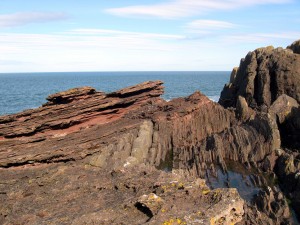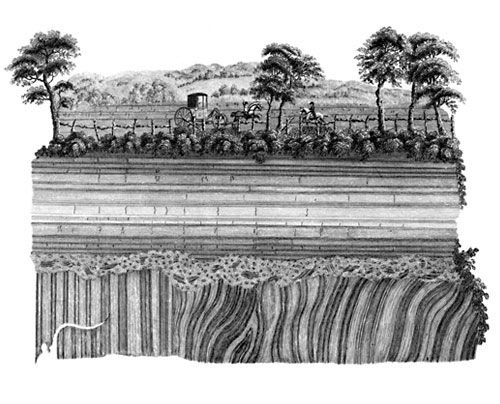Podcast: Play in new window | Download
Subscribe: Apple Podcasts | RSS
Geology is my favorite subject in science. It is one of the few disciplines that allow you to get paid to go on hikes and play in the dirt. Beyond the outdoor work environment, Geology tells us so much about the world we live in and plays a crucial role in diagnosing ecological problems. In this podcast I talk with Dr. Jani Radebaugh, who is a planetary scientist at BYU, about the basic principles of Geology like uniformitarianism, plate tectonics, and radiometric dating. The discipline of Geology teaches us that we live on a very very very old earth and that the forces that shape the earth now have been in motion for a long time, punctuated periodically by catastrophic events. For me, studying Geology often gives me a sense of awe as I learn about the deep and long time that the earth has been in existence, the magnitude of the forces involved in shaping the earth, and the wealth of material knowledge we have gained from the earth (despite the improbability of the existence of many bits of evidence such as fossils).
Geology clearly puts us at odds with a surface level fundamentalist reading of the scriptures, particularly the creation narratives. This leaves us with a question that Henry Eyring posed in his book Reflections of a Scientist:
We have a dilemma, however, because God has left messages all over in the physical world that scientists have learned to read. These messages are quite clear, well-understood, and accepted in science. That is, the theories that the earth is about four-and-one-half billion years old and that life evolved over the last billion years or so are as well established scientifically as many theories ever are. So, if the word of God found in the scriptures and the word of God found in the rocks are contradictory, must we choose between them, or is there some way they can be reconciled?
To me. the reconciling takes time and effort and it is not way of justifying the scriptures to mean what they say but a means through which we find value in scripture as well as science. It is a process that is constantly being practiced and honed at RationalFaiths.com. It is really the mission of this podcast and blog to find meaning in Mormonism. In that mission we accept and celebrate the meaning will be found in a variety of ways, some of them are going to be weird, like Mormonism should be.

A popular picture of Siccar Point which is a historic site in the development of Geology. Dr. Radebaugh mentioned this in our conversation and I nerd out about it pretty hard with Brian at the end of the episode.
For a Discussion on the Big Bang click here.





I to love science and have enjoyed several geology class over the years. One of my favorite bishops growing up was also my college geology professor and my scoutmaster we had many great talks under he stars that not only shaped my love if the science but my understanding of the scriptures as well. A book that has helped me understand the biblical creation story that I wanted to share with others is “The Lost World of Genesis One” by John H. Walton.
Thanks Clay. Tell us more about “The Lost World of Genesis One.”
Sound like a fascinating podcast. I’ll give it a listen.
What a geek-fest! And I mean that as the biggest complement! I loved it.
I read “Faith Versus Fact: Why Science and Religion Are Incompatible” by Jerry A. Coyne, last week, it would be a good book to consider for your podcast, if you are going to focus religion and science. It brings up arguments that I have struggled with for many years, which the science episodes on this podcast seem not to resolve either.
http://www.amazon.com/Faith-Versus-Fact-Religion-Incompatible/dp/0670026530
Here is a short podcast from the author giving a brief overview of his book: http://www.samharris.org/blog/item/faith-vs.-fact
(The interview does not go very deep into arguments put forth in the book)
DS,
Thanks for your suggestion. I probably won’t get to reading that book anytime soon for two reasons. The first is that I have plenty of books on my list that I am already failing to keep up with and the second is that Dr. Coyne (based on reading his bio and other internet skimming) seems to be lumping all religion together with anti-vaxxers and creationists and like other new atheists doesn’t seem to demonstrate any appreciation of the communal aspects of of religion (the parts that I think are worth grappling with). Refuting fundamentalists may be fun for some but I find it a bit predictable and boring. If you want to share more about the book that I am likely getting wrong since I have not read it feel free to reach out to me on FB and we can chat it up. Personally I think there is much to gain from the secular world (even the staunch anti-religionists like Dawkins, Harris and others) I just don’t think a whole lot is gained by proving religion wrong. I think the purpose and utility of religion and science are distinct and when religion tries to do science it fails. That much I agree with the new atheists. I think these long traditions of culture human behavior found in religions deserve a more full look than most of the anti-religionists want to give them.